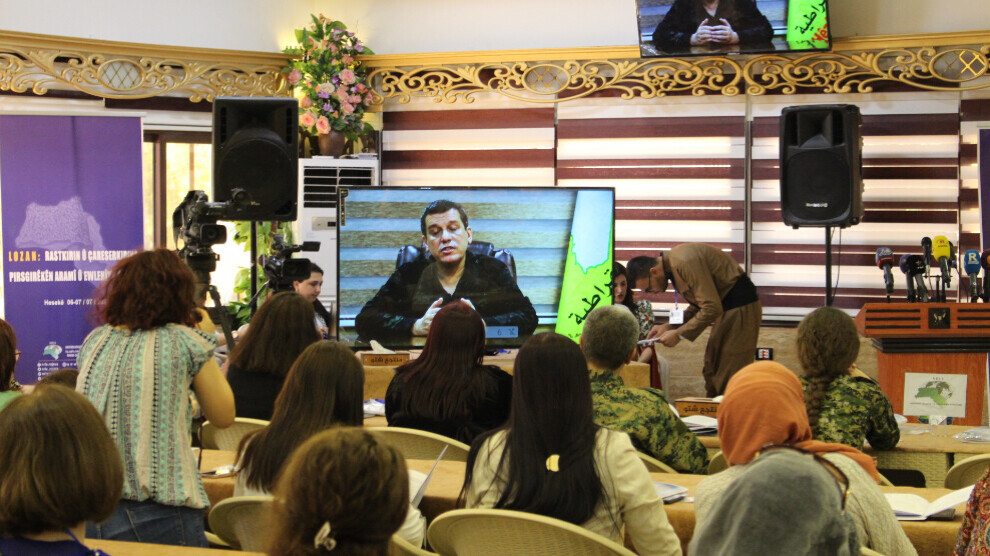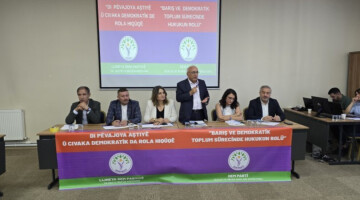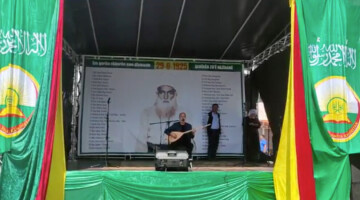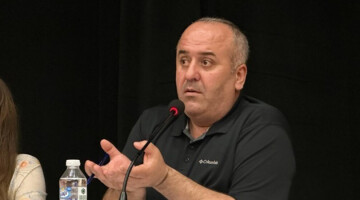An international workshop kicked off today in the northern Syrian city of Heseke about the Treaty of Lausanne, under the title "Lausanne: Course Correction, Stability and Regional Security”.

The two-day workshop organized by the Rojava Centre for Strategic Studies (NRLS) is attended by over 150 lawyers, politicians and researchers from Europe and the Middle East, as well as Berivan Xalid, Co-Chair of the Autonomous Administration of North and East Syria (AANES) Executive Council, and representatives of political parties, civil society organizations and research centers.

Three sessions will be held on the first day of the workshop, which will also host a speech in the name of the Asrın Law Office that represents Kurdish people’s leader Abdullah Öcalan and his fellow prisoners on the prison island of Imrali in Turkey.
On its second day, the workshop will discuss "the current situation of the Kurds and the challenges they face; ways to confront the war of extermination targeting the Kurdish people; how to overcome Lausanne and the optimal solution to the Kurdish question and the region".

The Commander-in-Chief of the Syrian Democratic Forces (SDF), Mazlum Abdi, sent a video message to the international forum and spoke about the policy of division and denial that the Treaty of Lausanne has given rise to.
“The policy of denial that began with the Treaty of Lausanne did not achieve its goals, and failed. Today, the Kurds have the opportunity to assert their cause and their presence on the map of the Middle East, in light of the political and military changes in the Middle East and the world,” he said.
Abdi stated, "There are great gains for the Kurds, which have been achieved through great sacrifices. Today, the Kurds are striving to guarantee their rights in Bashur, Rojhilat, Bakur and Rojava Kurdistan".
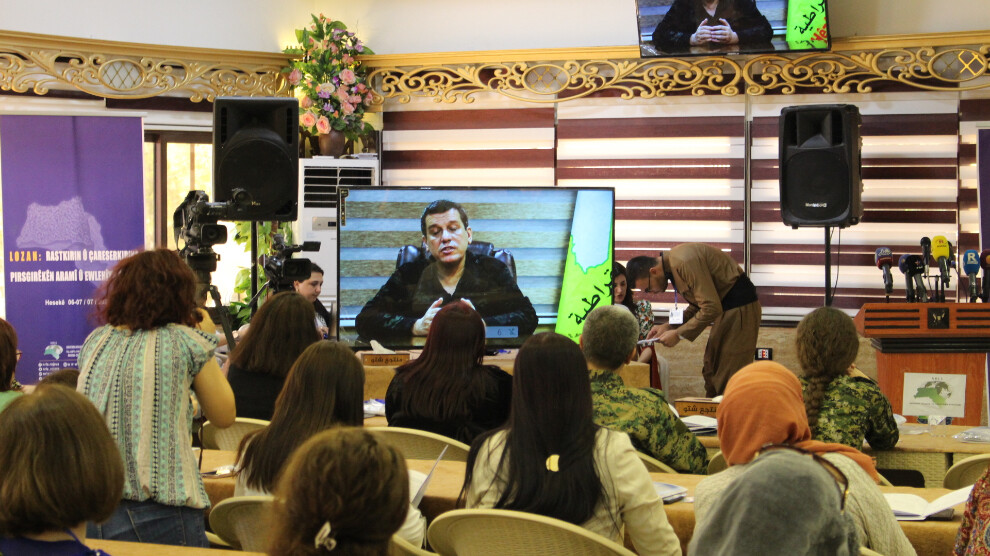
Calling for the preservation of the gains, Abdi appealed to the political and military forces in Kurdistan, saying: "We must develop ways to preserve these gains. In Bashur (South Kurdistan) there are gains that must be preserved and supported. In Bakur (North Kurdistan) there are great efforts and resistance shown in the face of denial attempts, so our people there must be supported. And the revolution in Rojhilat (East Kurdistan) needs to be embraced to make it reach its goals, as well as in Rojava."
Abdi called on the Kurdish people and the political and military forces in the first place to continue the struggle and resistance, to unify their forces, to move urgently without any conditions, and to assess the stage accurately in order to avoid wasting the available opportunity for the Kurds today.
Mazlum Abdi stressed that the Syrian Democratic Forces are ready for any kind of dialogue and unification of forces for the Kurdish cause without any conditions, referring to its previous attempts to unify efforts at the level of the political powers in Rojava through the initiative of the SDF.
"Through our initiative, we tried to unify the ranks of the political powers and parties in the region, and we were able to reach a political path, but it did not continue. We are ready to resume those talks between all the Kurdish political parties, and we hope that the Kurdish parties will return to the dialogue table".


